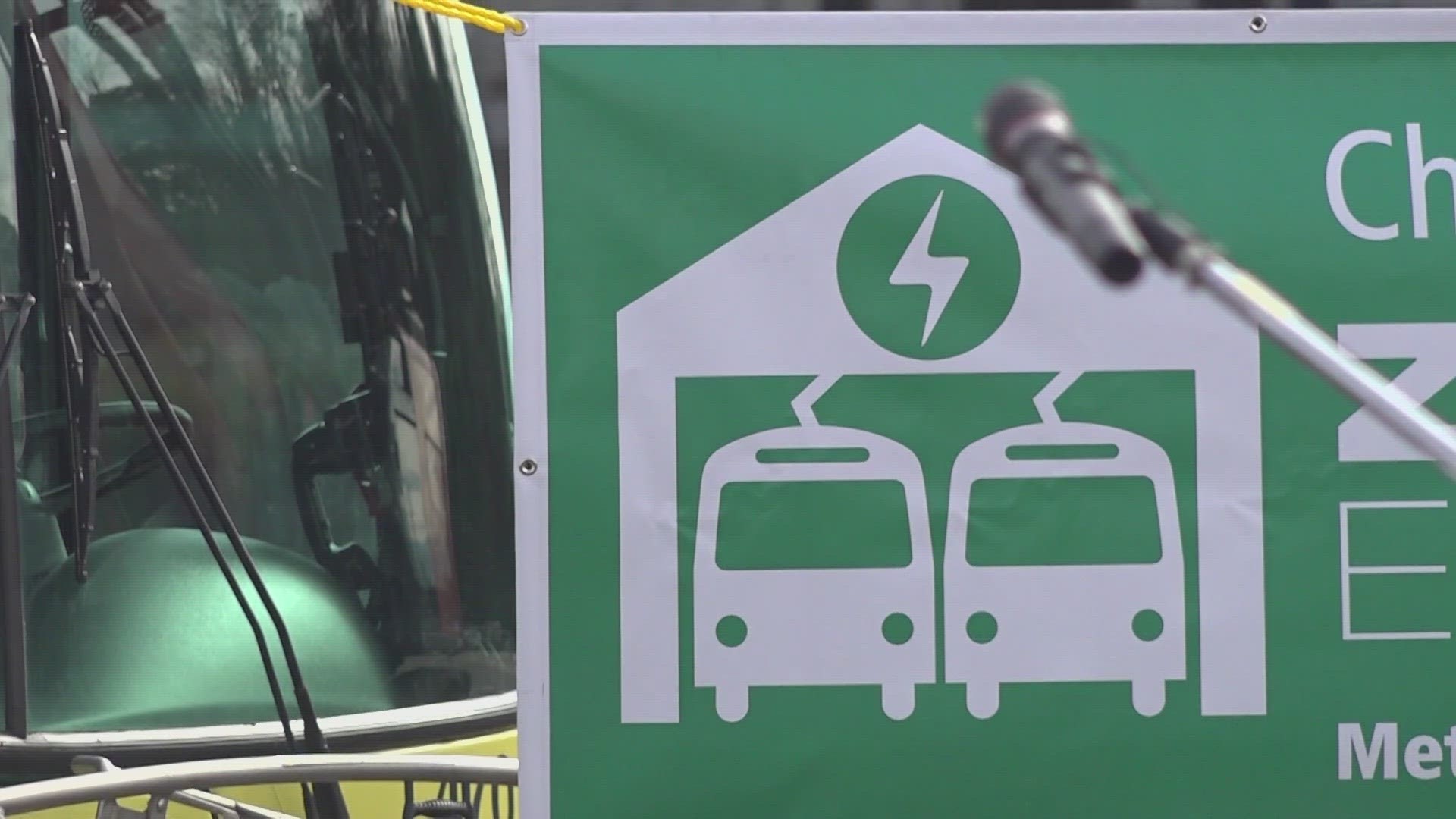SEATTLE — King County Metro announced Wednesday it has broken ground on the first 100% electric bus base, set to charge 120 buses expected to be delivered in the next two years.
"Deploying and expanding our fleet of battery electric buses is a critical component of our overall plan to reduce carbon emissions and reduce ambient pollution as well as address climate change," King County Executive Dow Constantine said at a news conference.
The base will support buses expected to go into service in 2026 and is set to cost $115 million. The design is meant to be sustainable. Officials said the project will use drought-resistant plants to reduce heat island effects and dark asphalt will be replaced with lighter-colored concrete.
Officials expect the site to function as a prototype for future battery-electric bus deployment stations, according to a news release.
Meanwhile, lawmakers passed HB1368, a measure aimed at moving school districts toward all-electric buses.
"This is absolutely about health for our children and for our bus drivers," said Rep. Tana Senn. "If you think about how much buses idle around kids lining up to get on buses, the bus stops, a lot of stop and starting, all the diesel fumes are going right into children's lungs, so we see higher rates of asthma and respiratory illness in places with worse air quality, so the more we can clean that up, the better for kids' health."
The bill strengthens a current grant program, directing funds to go first to districts where students face disproportionate amounts of poor air quality and have old diesel buses.
"The more we can switch out those buses the faster we get better air and the sooner everyone has cleaner air," Senn said.
State agencies will work to calculate the lifetime costs of electric buses versus diesel, and districts are directed to move over completely as it becomes the more inexpensive route. Analysts expect that will happen in around five years, though no hard deadline is set.
"We do not want this to be an unfunded mandate," Senn said. "We want school districts to be excited about this and to be able to do this. The short answer is: Save the Climate Commitment Act."
The Climate Commitment Act helps to fund the grant program for electric school buses, covering the difference between the costs of diesel and electric buses until electricity is less.

